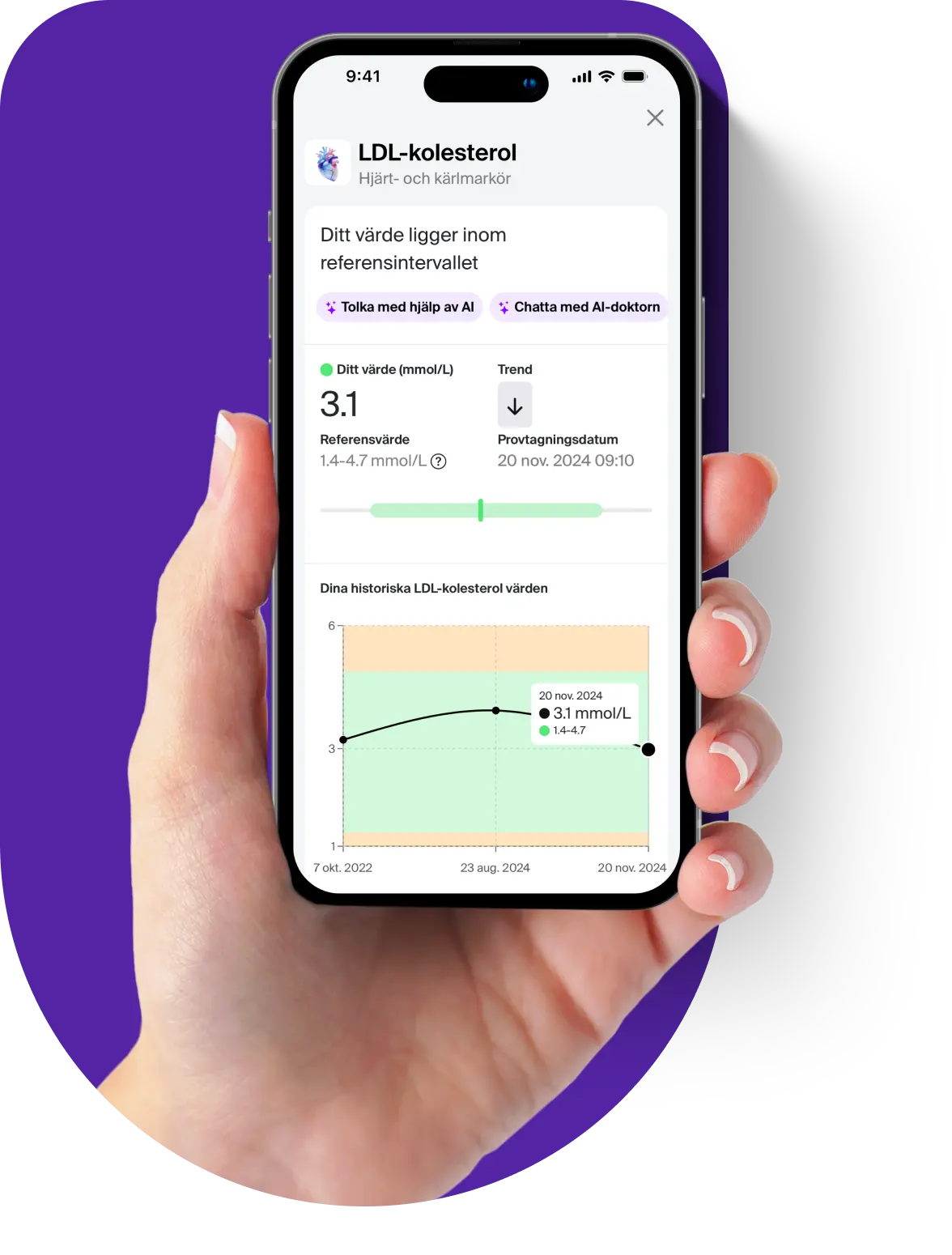S-Antitrypsin Blood Test – For Suspected COPD, Emphysema and Liver Damage
S-Antitrypsin (S-alpha1-Antitrypsin) is a blood test that measures levels of alpha-1-antitrypsin, a protein produced in the liver and plays a crucial role in protecting the lungs and other tissues from degradation by the enzyme elastase. The test is particularly relevant for people who smoke with suspected genetic alpha-1-antitrypsin deficiency, an inherited condition that can increase the risk of COPD, emphysema and liver damage.
When should you test S-Antitrypsin?
This blood test may be valuable to you if you are experiencing symptoms or have a medical history that suggests that your lungs or liver may be affected. A test is recommended for:
- Unexplained COPD or emphysema, especially if you are a non-smoker or have limited exposure to smoke.
- Recurrent lung problems, such as chronic cough, shortness of breath or frequent respiratory infections.
- Family history of alpha-1-antitrypsin deficiency, as the disease is genetically inherited.
- Signs of liver disease, such as elevated liver values, hepatitis or suspected cirrhosis.
- Autoimmune or inflammatory diseases, where alpha-1-antitrypsin may affect the inflammatory process.
Smoking and alpha-1-antitrypsin deficiency
If you smoke and suspect lung involvement, an analysis of S-Antitrypsin is particularly important. Studies show that smokers with alpha-1-antitrypsin deficiency develop emphysema significantly earlier than smokers with normal levels. By analyzing S-Antitrypsin, you can get an indication of whether your lung health is particularly at risk and whether further investigation is needed.
How to interpret S-Antitrypsin test results
- Normal values: Indicates that alpha-1-antitrypsin levels are within the reference range and that the risk of genetic deficiency is low.
- Elevated values: Can be seen with inflammation, infection, estrogen therapy or liver disease.
- Low values: May indicate alpha-1-antitrypsin deficiency, liver failure or diseases where proteins are lost, e.g. nephrotic syndrome.
In case of low values, further investigation through genetic analysis of the SERPINA1 gene and phenotyping may be necessary to confirm the diagnosis.
Analyzing S-Antitrypsin can be a first step in understanding your risk for long-term lung and liver diseases. If you have symptoms that affect your breathing, an unexplained liver disease or a genetic risk factor, this test can provide valuable information for further investigation and treatment.






















